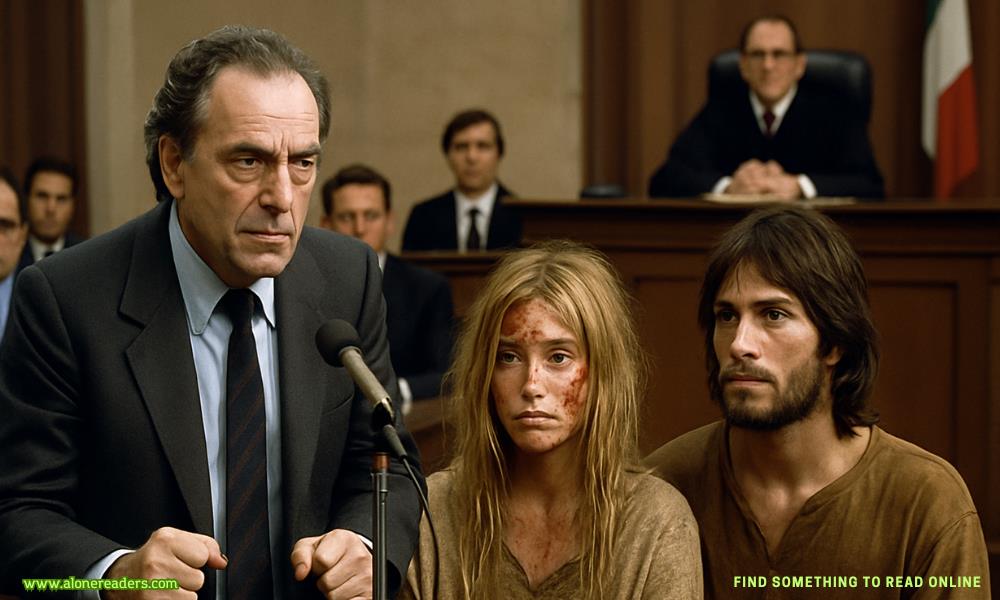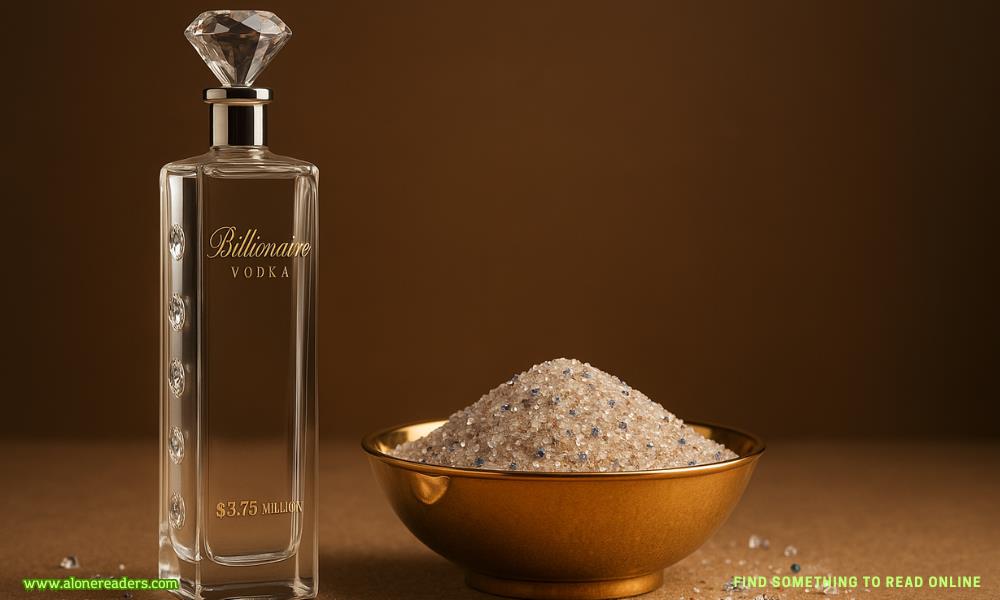Page 38 of Black Castle
This is not over.
Oh, not by a long shot.
The next time he takes control, the story will be different from this.
Lucan needs to watch his back.
Chapter Twelve
Vivienne
Vivienne’s father confessed in court to finding pleasure in the fear he saw in his victims’ eyes while holding a knife to their throats. And he said it with a gaze so gaunt, Vivienne had to double-check if that was really her dad, the kindest man she ever knew.
Yet his confession, delivered without remorse and with a calm demeanor, did not sway Vivienne. A part of her still believes he was lying. He was always a skilled actor. He even told her one time that if he hadn’t made it as a successful college professor, he would have made it to the movie screen.
Ten years have passed since his sentencing. Ten years since Vivienne was forced into premature adulthood for survival.
She was only nine when it all happened. Now nineteen, you will think she knows now how to separate truth from lies, deceit from sincerity, and a conscious act from manipulation. But no, she is still so adamant on believing he did all those killings because he wasn’t in his right frame of mind. Something happened to him then. A voice in his head, perhaps could have compelled him. And if a voice was in his head, then Clement Baudin isn’t the killer the court charged him with being. A prominent psychologist could have come in handy.
Or it can be that Isadora Rivera was right all along and Vivienne is as depraved and psychotic as her father—trying to excuse a serial killer’s villainous and morbid actions.
Maybe her father’s black blood really is flowing through her veins.
Back in front of her laptop, its screen displaying the Marseille prison’s visiting room, she waits, as always, for prisoner 4156 to appear, cuffed and chained.
One year has passed since their last conversation. Ten years prior, she had secretly left school to see him in prison. She had just turned ten then, two weeks after his trial.
That day, she had longed for a hug, a retraction of his words, an apology, and a return home to her and Isadora. But he couldn’t really do much. He just promised that he would come back home soon. But it was obvious he was lying, just trying to make her feel better. The guards were really mean and their eyes were cold. It was obvious they wouldn’t let him go home so soon and so easily.
She had been so unashamed that day, she cried all the way to the train station. And so unbothered that people were watching as she blew into her neon green sweater.
That was their final physical encounter. Isadora moved to the States with her two weeks later.
Each year following that, a video call connects them. She consistently visits Kenji’s house for that because Isadora will wring her neck if she ever stumbles upon her talking to that man. She has specifically forbidden that.
Now in front of her, Vivienne almost blurts out “Dad” when Clement Baudin appears on her laptop screen, exiting a gated hallway. In contrast to other nations, France does not enforce uniform policies for its prisoners. So he shows up again in his typical white sweatshirt and gray sweatpants. It might as well be a uniform now.
“Juliette,” he drawls.
Hearing her long-forgotten birth name, tugs painfully at her heart. Her eyes itch, and she thinks she wants to cry.
They made her change her name to Vivienne Marchand a few weeks before they left France. Though she understood it was the only way to shield herself from the frenzy targeting Clement Baudin’s relatives, it felt like a vital part of herself was being violently taken. Her late mother, Elodie Anne Baudin, had given her that name. And she grew up loving it, for reasons other than her childhood reading of Romeo and Juliet.
“Hi,” she whispers.
Watching her dad through the camera, she feels cheated thinking about the easy communication, home visits, and proud mentions of fathers she’d had to witness among her schoolmates. Whereas, her father’s imprisonment has prevented her from mentioning his name. And she dares not stay in a conversation where people talk about their dads. Because she will be too ashamed to say her dad was convicted for multiple murders.
“It’s always a pleasure to see you, little rosette,” he says, a twitch at the corner of his lips hinting at a smile that belies his cold-blooded nature.
She notices how his once luscious hair black hair, full of sheen, is now dry and marred with breakages.
Across from her, he stares, his blue eyes as still and lifeless as a river. Not a flicker of emotion can be seen in them. Is the love she used to see in those eyes really just an illusion?
Can this really be the same Dad who would take her to amusement parks, make her breakfast, go on drives with her, and tell her countlessly how much he loves her?
“How have you been?” Vivienne asks. But it’s obvious how he has been. He is fading away, getting noticeably thinner in the face.
He scrubs a hand down his face, his fingers dragging over the years-old stubble shadowing his jaw. “I’m stuck in a building filled with fools of different kinds, the food tastes like cardboard.” His jaw tightens when he exhales, his lips curling into something that isn’t quite a smirk. “But it’s fine. I’ll be out of here soon.”
- The Hollywood Billionaire's Fangirl Wife by Marian Tee
- The Mechanic's Virgin by Jenna Rose
- Perfect Three by Suzy Shearer
- Silver Fox Daddies by Liz Archer
- Sassy Pants by Glenna Maynard
- Neighbor DADDY by Lena Little
- Forgotten Dreams by Natasha Madison
- Last Hand by Jessica Hall
- Knocked-up Bratva Bride by Rina Lawson
- Domination by B.J. Alpha
- Cruel Revenge by Kira Cole
- Selfish Suit by Whitney G.
- Burned to Obey by Wynter Raven
- The Therapist by K. Larsen
- Obsession by J.O. Mantel
- Pursuit of Her by Emily Hayes







